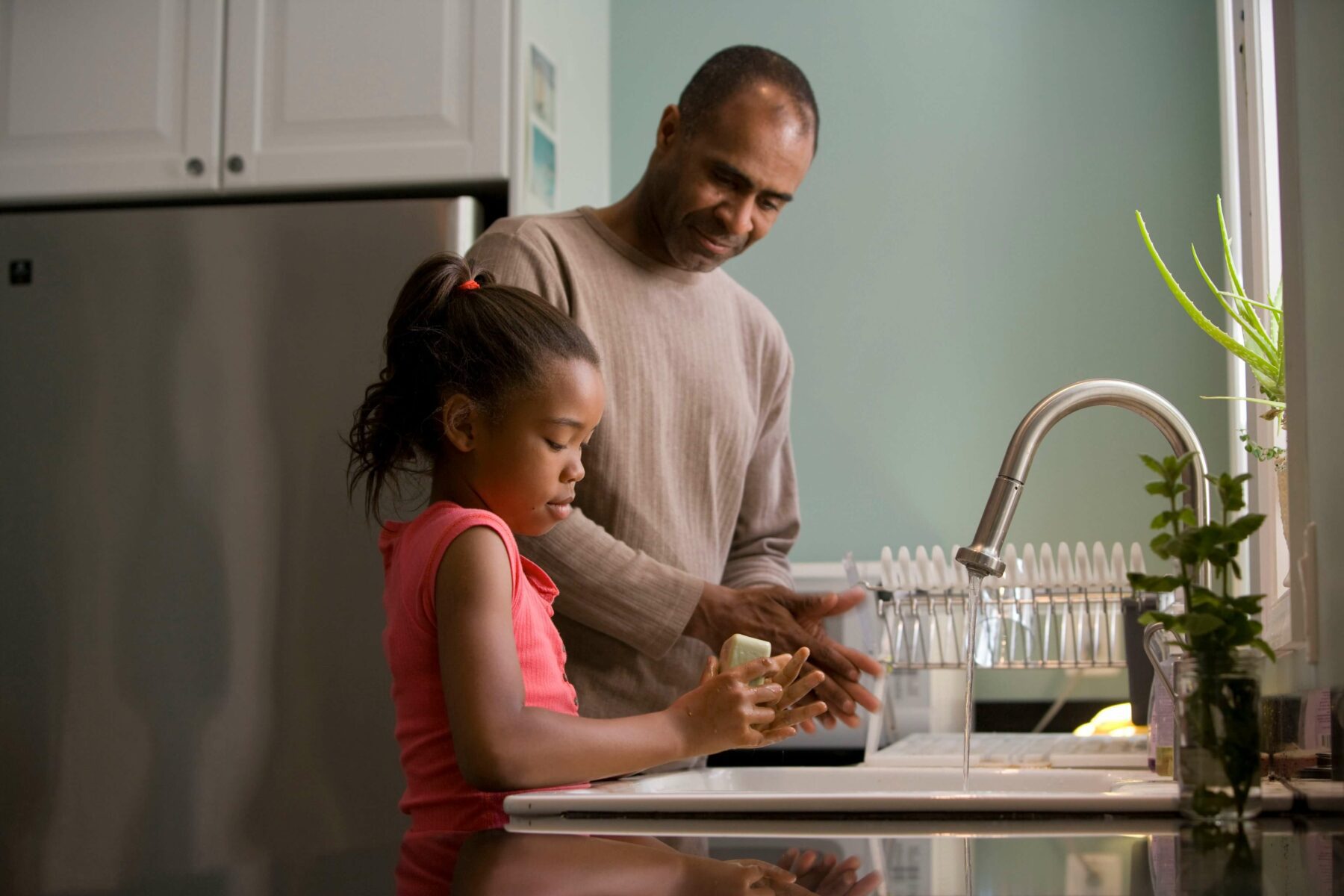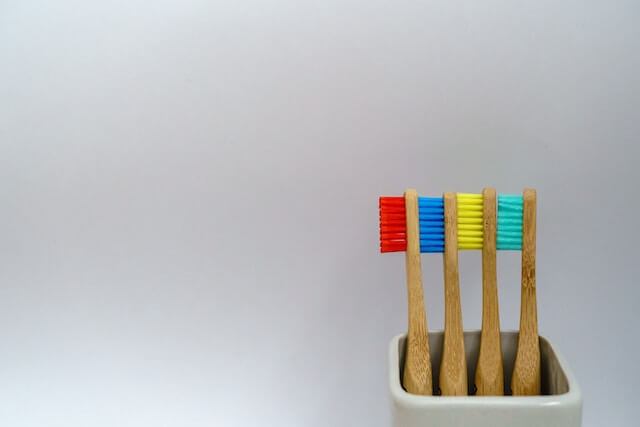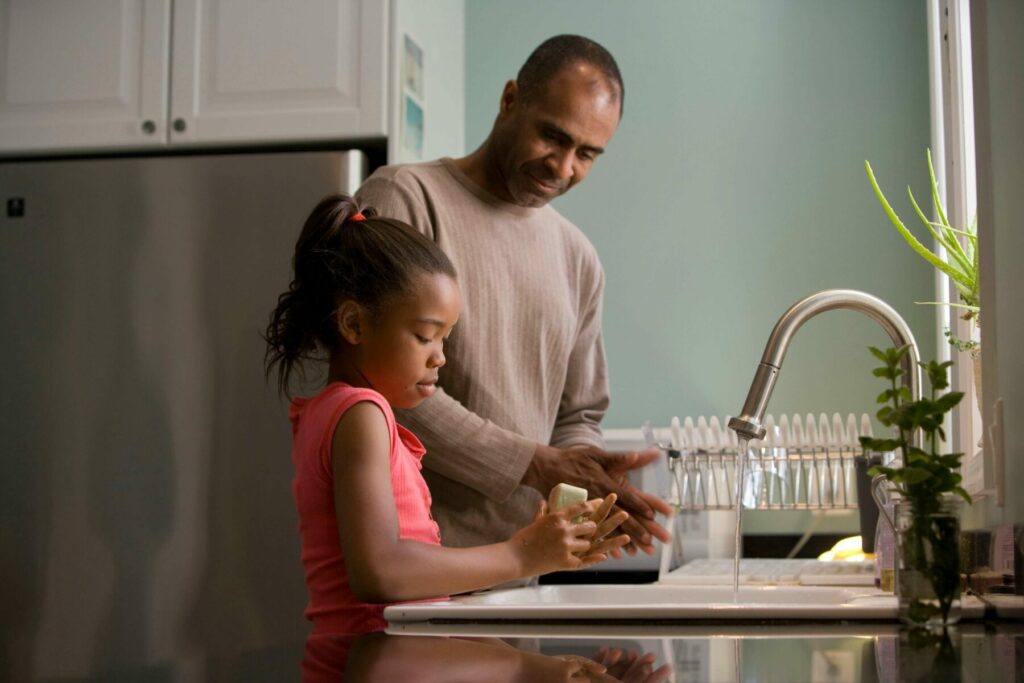
Autism spectrum disorder (ASD) can negatively impact your child's ability to focus on their personal hygiene.
By the time you're done with this article, you will know exactly what you need to do to help your autistic son or daughter reach the desired cleanliness and personal hygiene goals.

How does autism affect personal hygiene?
Due to the psychological and sensory challenges that they face, keeping healthy and hygienic is sometimes difficult for autistic individuals.
Why does sensory processing disorder make hygiene difficult for children with autism?
Sensory Processing Disorder (SPD) can make hygiene difficult for children with autism because it affects how they perceive and respond to sensory stimuli. Here are some reasons why:
- Over-Sensitivity to Sensory Experiences: Many children with autism are hypersensitive to touch, smell, sound, and sight. This means common hygiene practices like brushing teeth, taking a shower, or even wearing certain clothes can be overwhelming and uncomfortable for them.
- Difficulty With Fine Motor Skills: Hygiene tasks often require fine motor skills, something that can be challenging for children with SPD. For example, holding a toothbrush, applying the right amount of pressure while brushing, or using a nail clipper can be difficult.
- Resistance to Change: Children with autism often prefer routines and struggle with changes. Introducing new hygiene habits can be seen as a change in their routine, causing distress and resistance.
- Tactile Defensiveness: This is a term used to describe the reaction that occurs when someone is very sensitive to touch. For a child with this condition, the textures of a toothbrush, towel, or soap could cause discomfort or anxiety.
- Difficulties with Interpreting Sensory Information: Children with SPD may have trouble processing multiple sensory inputs at once. This can make tasks that involve several senses, such as bathing, overwhelming.
- Smell Sensitivity: Some children with autism have a heightened sense of smell. The scent of certain hygiene products could be overpowering to them.
It's important to note that every child with autism is unique and may experience these challenges to varying degrees. Parents and caregivers can work with occupational therapists and other professionals to develop strategies tailored to each child's needs to help them cope with these difficulties.
For a start, several types of mental illnesses, such as depression, can cause your child to neglect self care and cleanliness. This is a common sign of mental health problems among both autistic and neurotypical kids.
However, because of their delicate sensory functions, those with an ASD diagnosis may experience this problem more severely.
Here is how these sensitivities could impact their personal hygiene:
- Your child may not be able to tolerate a strong-smelling soap or shampoo. If this is the case, replace their soap and/or shampoo with a scentless product or one that's designed for sensitive skin.
- The feeling of running water touching the kid's skin can feel unpleasant. To address this, consider giving your child a bath instead of a shower.
- The laundry soap or detergent that you're using could irritate your son or daughter's skin when they put on their clothes. Buying alternative products may resolve this problem.
- In the same vein, the fabric or textile that their clothing is made out of might be uncomfortable. When this happens, you should try to find clothes with materials that your child can tolerate wearing.
Even though every autistic kid has unique mental and sensory functions, establishing daily routines is one of the best ways for teaching children with ASD how to take care of their personal hygiene.

What kind of hygienic activities do autistic children need to learn?
Autistic kids tend to respond well to structures and routines. With that in mind, you may want to establish a consistent daily schedule that includes cleaning and self care.
This is a very effective method for teaching an autistic boy or girl about the hygienic activities and habits that they need to maintain. Splitting these tasks into morning and evening ones can make this strategy more successful.
Hygienic Morning Routine
Here are some of the hygienic activities that should be part of your child's morning routine:
- Wake up and make the bed
- Go to the bathroom for a shower or bath
- Use the towel for drying the hair and body
- Put on a bathrobe or pajamas, and then the slippers
- Brush their teeth
- Comb their hair
- Go to the dining room for breakfast
- Put away the dishes after eating
- Get dressed, starting with the shirt, then the pants, and, finally, the socks
- Put on the shoes before leaving the house
When you put this routine together, you want to ensure that these tasks are done in a specific order. A consistent daily ritual makes it easier for your autistic son or daughter to remember these activities and when they need to do them.
Hygienic Evening Routine
Similarly, here is a potential hygienic evening routine that your child could follow:
- Wash the hands before dinner
- Have dinner and then put the dishes away
- Go to the bathroom to wash the hands and mouth
- Wash the face
- Brush and floss
- Comb the hair
- Go to the bedroom to change
- Get undressed, starting with the shirt, then the pants, and, afterwards, the socks
- Place the dirty clothing in the laundry basket
- Put on pajamas, beginning with either the shirt or pants
Regardless of which activities are done first, the most important thing is to follow the same order on a consistent basis.
Moreover, there are certain teaching methods that you could use to help your son or daughter with their morning and evening routines.

Teaching Your Autistic Child Proper Hygiene
Modeling
Simply put, modeling entails mimicking your child's hygienic activities as they complete them.
For example, while your kid is washing their hands or brushing their teeth, stand next to them and copy their motions as if you're doing the same thing.
Use Rewards
Rewards will give your autistic child the incentive to take care of their cleanliness.
For example, when they brush their teeth in the morning on their own and without being asked to do so, you could promise to give them their favorite snack or candy after dinner.
Over time, brushing their teeth in the morning will become a subconscious habit, and your son or daughter eventually begins to do it without expecting a reward.
Use Social Stories or Videos
Narrating a story about a character’s hygienic habits offers your child a practical example that they can copy. Using videos for this purpose is an even better tactic.
Use Visual Checklists
Write down your son or daughter's morning and evening tasks on a whiteboard or piece of paper that you could hang up on their bedroom or bathroom wall. This will help them remember these activities.
Add a check mark next to each task or cross them out whenever your boy or girl completes them. When they finish all the activities that are on the list, give them a reward.
On that note, you may want to consider getting the advice of a professional therapist on how and when you should reward your autistic child.

How ABA Therapy Can Help
Applied behavior analysis (ABA) therapy is arguably the most proven and effective approach for managing ASD symptoms.

At Hidden Talents ABA, a team of licensed and highly-trained experts will work with your kid and give a custom treatment plan based on their specific sensitivities, sensory issues, and needs.
By identifying and eliminating the smells, textures, lights, and other environmental factors that make your son or daughter uncomfortable, our ABA therapists will guide them towards attaining their personal hygiene goals and beyond.





